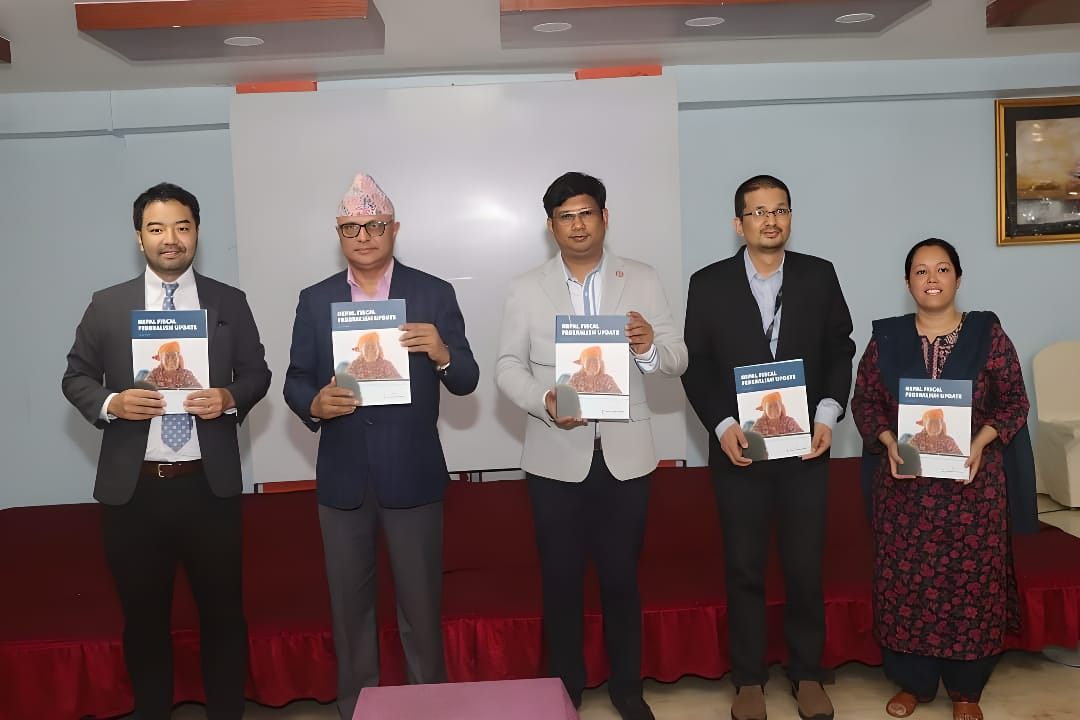Biratnagar 10 September
The provincial-level event in Koshi Province for the report on Nepal's fiscal federalism, the "Nepal Fiscal Federalism Update 2024," was publicly released on 10th September 2024 in Biratnagar. Purbanchal University and the World Bank Nepal jointly organized the event.
The Vice-Chancellor of Purbanchal University chaired the program, Prof. Dr. Biju Kumar Thapalia, with the Chief Minister of Koshi Province, Hikmat Kumar Karki, as the chief guest. Yoshihiro Saito, Public Sector Specialist of Governance Global Practice at the World Bank, welcomed the participants and gave an overview of the program.
Similarly, Nayan Krishna Joshi, an economist at the World Bank Nepal, gave a PowerPoint presentation explaining the various aspects and recommendations in the report on Nepal's fiscal federalism (Nepal Fiscal Federalism Update 2024).
Addressing the program, Chief Minister Karki expressed the provincial government's commitment to positively consider the recommendations outlined in the report. He emphasized that political, administrative, and financial aspects are equally important in the implementation of federalism, and without the implementation of fiscal federalism, the federal system cannot succeed.
He further stated that since the implementation of federalism, he has been continuously involved in building the provincial government structure over the past seven years and is aware of the achievements, challenges, and opportunities.
Prof. Dr. Biju Kumar Thapalia, Vice-Chancellor of Purbanchal University, remarked that since the implementation of federal governance, fiscal federalism has been an integral part of Nepal's development journey and good governance. He added that the federal structure is the foundation for Nepal’s future development due to its role in ensuring equitable distribution and effective management of financial resources. He expressed confidence that the report would further strengthen financial management based on federalism and pave the way toward prosperity.
Vice-Chancellor Prof. Dr. Thapalia said, "The Nepal Fiscal Federalism Update 2024 is not just about data and analysis; it is a key milestone that will make our federal system more effective and inclusive."
He noted that the report addresses the distribution and equality of financial resources, capacity building for revenue collection, coordination between the federal, provincial, and local governments, transparency and accountability, and promoting development at the local level, which includes both urban and remote areas.
Additionally, Vice-Chancellor Prof. Dr. Thapalia pointed out that by providing internship opportunities to university students, the shortage of human resources at the provincial and local levels could be addressed, and the university is ready to offer necessary support for capacity building. He also urged international organizations like the World Bank to involve experienced faculty members to provide the required official data and emphasized the university's readiness for long-term collaboration in this regard.
Prof. Dr. Thapalia expressed his pleasure at the institutional collaboration between Purbanchal University and the World Bank Nepal and thanked the dedicated team who worked diligently on the report. He also committed to continuing such partnerships with the World Bank Nepal in the future.
In the second phase of the program, a panel discussion was held based on the "Nepal Fiscal Federalism Update 2024." Panelists included Secretary of the Ministry of Economic Affairs and Planning of Koshi Province, Shankar Nepal, Assistant Professor of Economics at Purbanchal School of Management, Biratnagar, Dinesh Raj Subedi, and Acting Chief Administrative Officer of Biratnagar Metropolitan City, Ram Prasad Dhungel.
The panelists shared their perspectives on the implementation of the recommendations in the report as well as the achievements, challenges, and opportunities at the provincial and local government levels.
The discussion was facilitated by Mahaprasad Khatiwada, a faculty member at Purbanchal Janata Campus, and concluded with responses to questions raised by participants.
